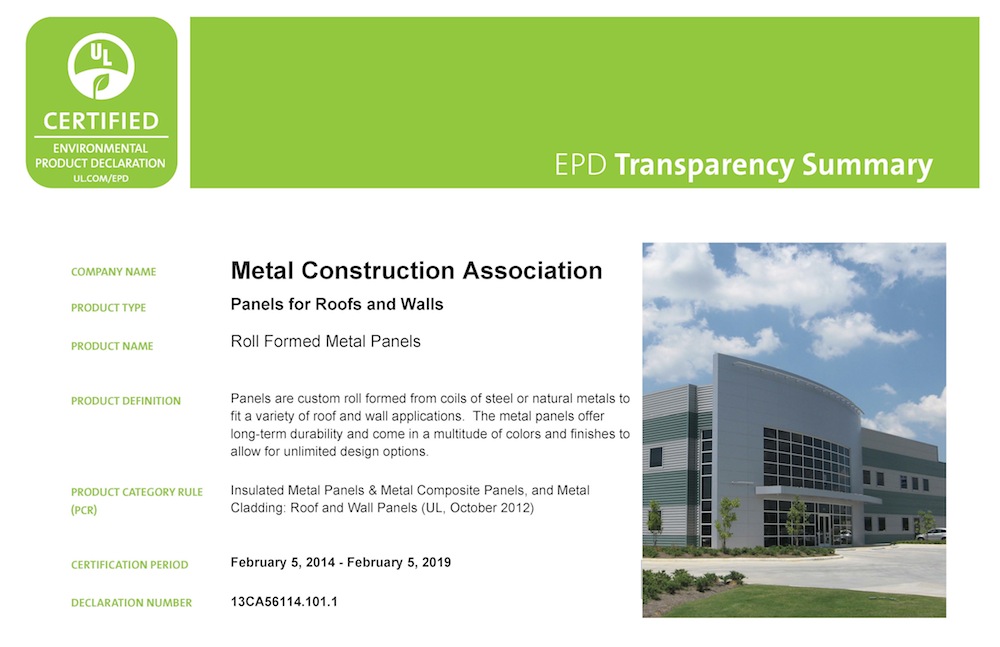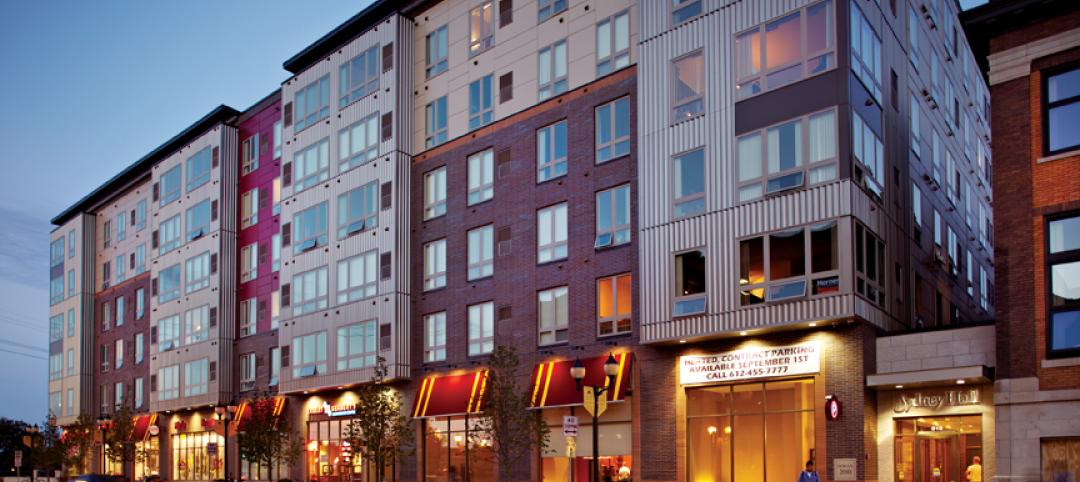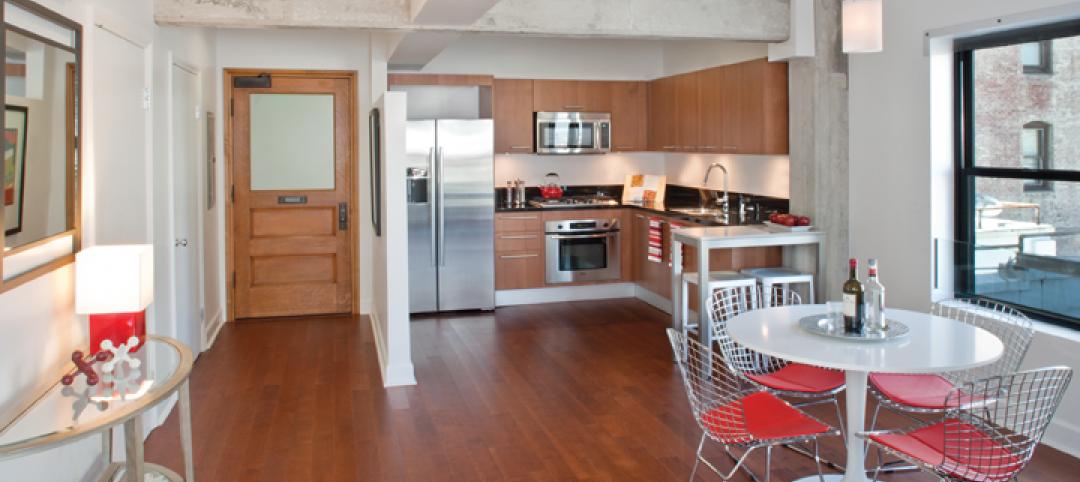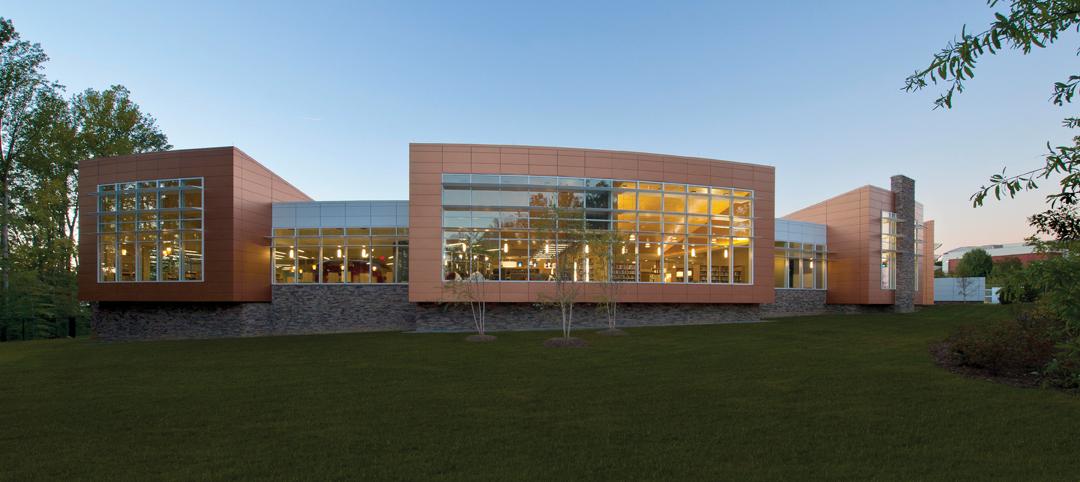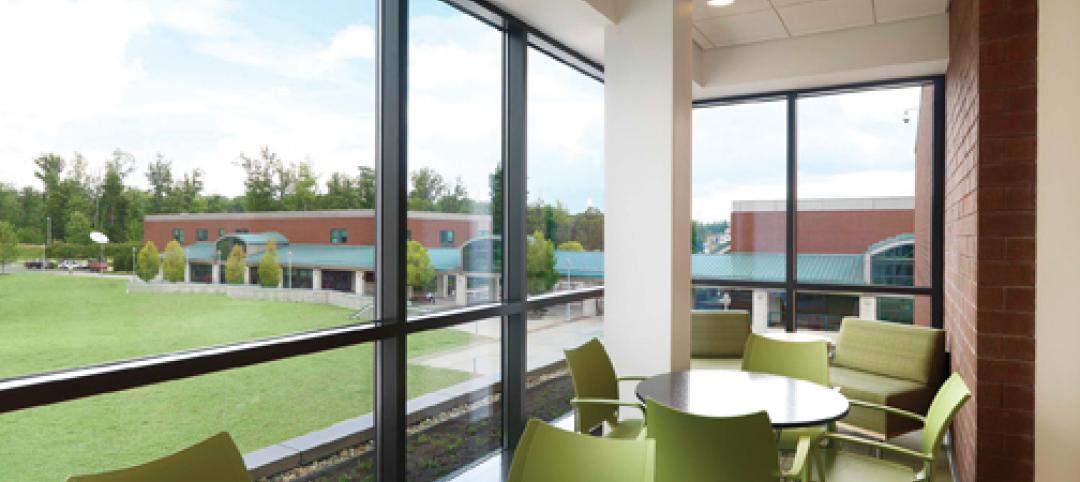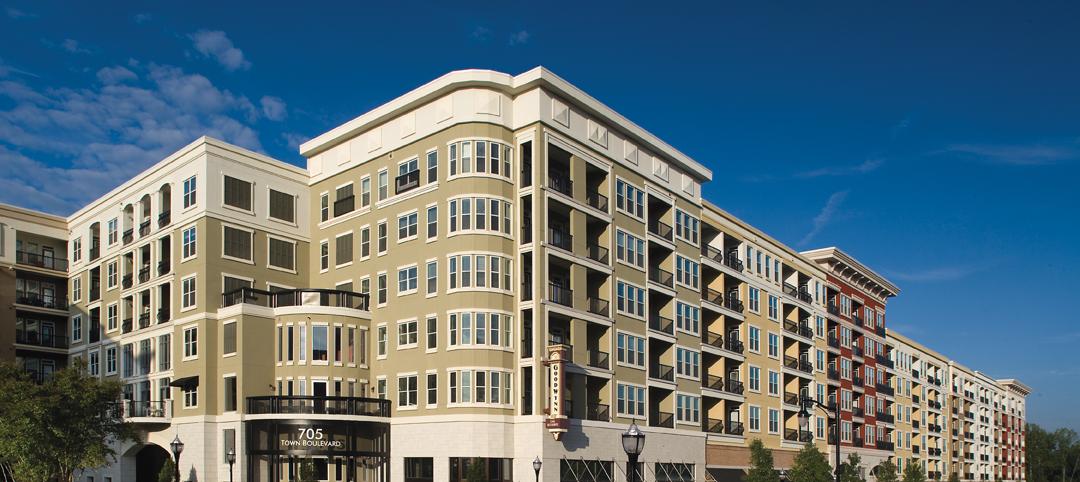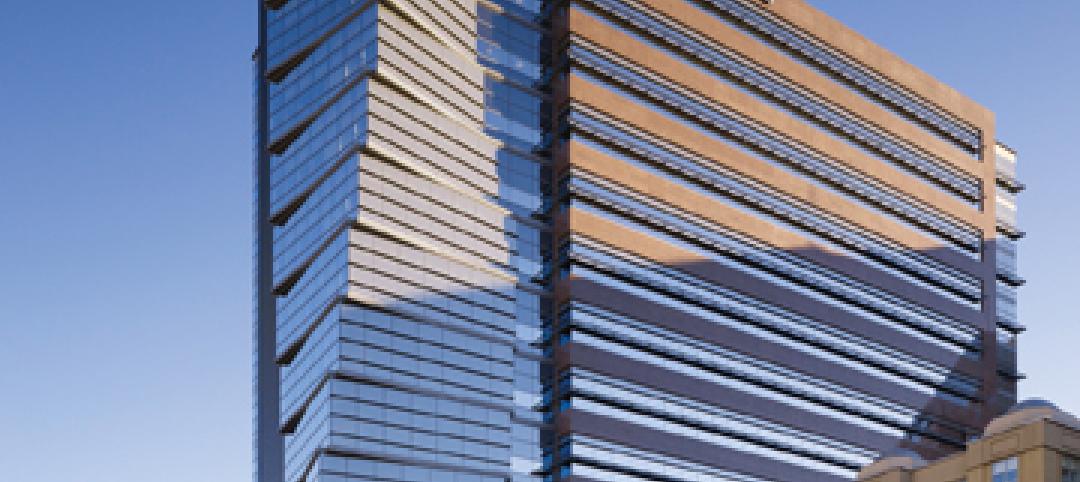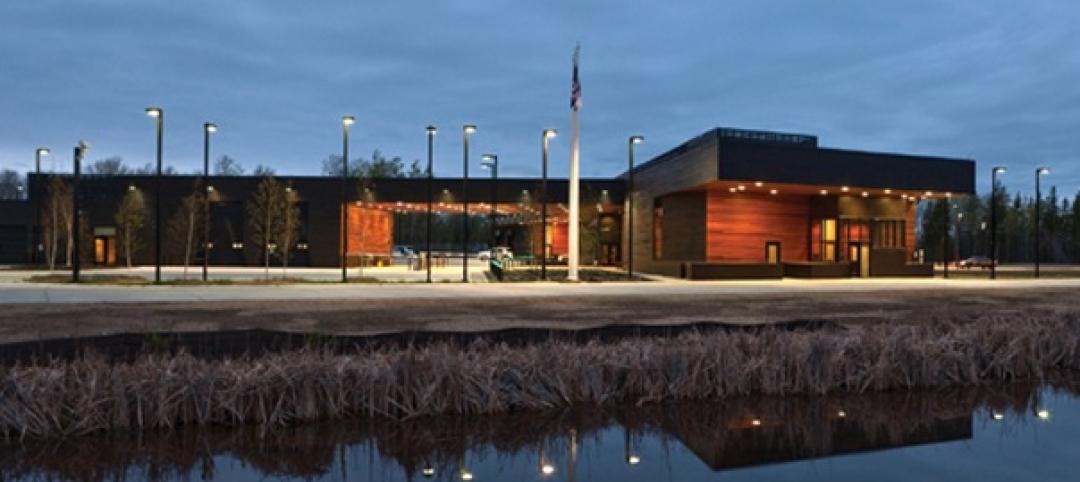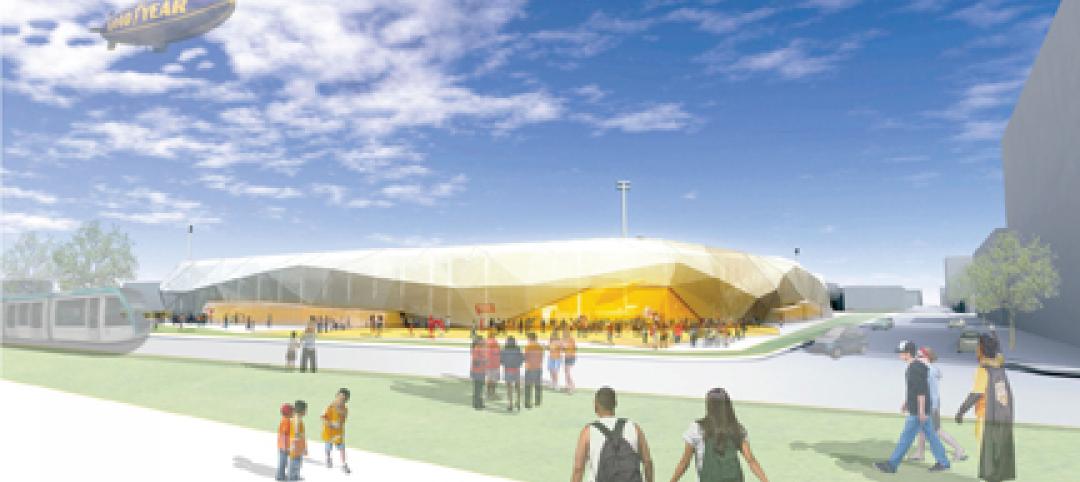Two Environmental Product Declarations (EPD), one for Metal Composite Material Panels and one for Roll Formed Steel Panels for Roofs and Walls, are now available free of charge from the Metal Construction Association (MCA) on its website.
These documents are the second and third EPDs to be released by MCA, an organization of manufacturers and suppliers whose metal wall and roofing components are used in buildings throughout the world. In October 2013, MCA developed an EPD for Insulated Metal Panels.
Environmental Product Declarations provide LCA-based information and details about the environmental impacts of products and assist purchasers and users in making informed comparisons. As more members of the design community use EPDs, which are now included in the new LEED V4 green building rating system, MCA is responding by issuing industry-wide EPDs that report the environmental impact of members' products and related assemblies.
"The way in which an EPD is used depends on what environmental impact categories relate to the architect, project or building owner. It's the same process as when you read a nutrition label on a food item. You look at what's most important to you while someone else will look at what's important to them. With an EPD it depends on what the project team feels is most important," notes Scott Kriner, MCA technical director. He also indicates that even if a project is not aiming for LEED certification, architects may require EPDs as a transparent method to describe the environmental impacts of materials used in a project specification.
MCA's EPDs contain valuable information about product definition, building physics, the basic material and its origin, product manufacture and processing, in-use conditions, life cycle assessment results, and testing results and verifications. Environmental impacts were assessed throughout the lifecycle of metal composite material panels and roll formed panels, including raw material extraction, transportation, manufacturing packaging, use, and disposal at the end of a building's useful life. The product configurations in the EPDs use ranges representative of all types of panels based on specific products from the primary producers that were used in the assessment and testing.
Information in the Metal Composite Material (MCM) EPD was prepared by MCA technical staff and members of MCA's MCM Fabricators Council and MCA's Wall Panel Council who are volunteers representing the leading manufacturers of MCM and companies that provide premium fabricating services for MCM. Originally known as Aluminum Composite Material (ACM), the name has evolved to Metal Composite Material to reflect the addition of other facer metals such as zinc, copper, stainless steel, and titanium.
MCM panels are formed by bonding two metal facer skins to a highly engineered plastic core. The panels can be finished in virtually any color a building owner or architect desires. Zinc, copper and titanium panels are usually installed unfinished, utilizing the benefit of these natural materials to achieve a unique weathered look over time.
Information in the EPD on Roll Formed Steel Panels for Roofs and Walls was prepared by MCA technical staff and members of MCA's Roofing Council and its Wall Panel Council who are volunteers representing the leading manufacturers of metal products used in roof and wall applications.
Roll Formed Panels are custom formed from coils of steel or natural metals to fit a variety of roof and wall applications. The panels can be factory-formed, formed on the jobsite using a mobile roll former, or a combination of both. For decades roll-formed metal wall and roof panels have served building owners and architects as one of the best combinations of economy, service and design. The metal panels offer long-term durability and come in a multitude of colors and finishes to allow for unlimited design options.
The Life Cycle Assessment for both the MCM and Roll Formed products on which the EPDs are based was performed for the MCA by PE International, Boston, MA. All content in the EPD documents has been reviewed by a UL Environment Review Panel and independently verified in accordance with ISO 14025 and ISO 14044.
To obtain a copy of any of the MCA EPDs visit www.metalconstruction.org or contact MCA at 847-375-4718 or mca@metalconstruction.org.
About the Metal Construction Association
The Metal Construction Association brings together a diverse industry for the purpose of expanding the use of metal in construction through marketing, research and technology and education. Companies involved in MCA gain tremendous benefit from association activities that focus on research, codes and standards, market development, and technical programs. MCA's market development efforts increase the use of metal materials in construction through the education of the building and design communities about the benefits of metal.
MCA's next national meeting is the 2014 Summer Meeting, scheduled for June 23-25, 2014 at the Westin O'Hare in Rosemont (Chicago), IL. Please refer to the MCA website www.metalconstruction.org for additional information.
Related Stories
| Jan 21, 2011
Nothing dinky about these residences for Golden Gophers
The Sydney Hall Student Apartments combines 125 student residences with 15,000 sf of retail space in the University of Minnesota’s historic Dinkytown neighborhood, in Minneapolis.
| Jan 21, 2011
Revamped hotel-turned-condominium building holds on to historic style
The historic 89,000-sf Hotel Stowell in Los Angeles was reincarnated as the El Dorado, a 65-unit loft condominium building with retail and restaurant space. Rockefeller Partners Architects, El Segundo, Calif., aimed to preserve the building’s Gothic-Art Nouveau combination style while updating it for modern living.
| Jan 21, 2011
Sustainable history center exhibits Fort Ticonderoga’s storied past
Fort Ticonderoga, in Ticonderoga, N.Y., along Lake Champlain, dates to 1755 and was the site of battles in the French and Indian War and the American Revolution. The new $20.8 million, 15,000-sf Deborah Clarke Mars Education Center pays homage to the French magasin du Roi (the King’s warehouse) at the fort.
| Jan 21, 2011
Library planned for modern media enthusiasts
The England Run Library, a new 30,000-sf glass, brick, and stone building, will soon house more than 100,000 books and DVDs. The Lukmire Partnership, Arlington, Va., designed the Stafford County, Va., library, the firm’s fourth for the Central Rappahannock Library System, to combine modern library-browsing trends with traditional library services.
| Jan 21, 2011
Virginia community college completes LEED Silver science building
The new 60,000-sf science building at John Tyler Community College in Midlothian, Va., just earned LEED Silver, the first facility in the Commonwealth’s community college system to earn this recognition. The facility, designed by Burt Hill with Gilbane Building Co. as construction manager, houses an entire floor of laboratory classrooms, plus a new library, student lounge, and bookstore.
| Jan 21, 2011
Upscale apartments offer residents a twist on modern history
The Goodwynn at Town: Brookhaven, a 433,300-sf residential and retail building in DeKalb County, Ga., combines a historic look with modern amenities. Atlanta-based project architect Niles Bolton Associates used contemporary materials in historic patterns and colors on the exterior, while concealing a six-level parking structure on the interior.
| Jan 21, 2011
Research center built for interdisciplinary cooperation
The Jan and Dan Duncan Neurological Research Institute at Texas Children’s Hospital, in Houston, the first basic research institute for childhood neurological diseases, is a 13-story twisting tower in the center of the hospital campus.
| Jan 21, 2011
Music festival’s new home showcases scenic setting
Epstein Joslin Architects, Cambridge, Mass., designed the Shalin Liu Performance Center in Rockport, Mass., to showcase the Rockport Chamber Music Festival, as well at the site’s ocean views.
| Jan 21, 2011
GSA Recognizes the Best in Public Architecture
The U.S. General Services Administration recognized the best in public architecture and civilian federal workplaces at the 2010 GSA Design Awards in Washington, D.C. This year's 11 award winners showcase the federal government's commitment to cutting-edge architectural design and its focus on sustainability.
| Jan 20, 2011
Houston Dynamo soccer team plans new venue
Construction is scheduled to begin this month on a new 22,000-seat Major League Soccer stadium for the Houston Dynamo. The $60 million project is expected to be ready for the 2012 MLS season.


